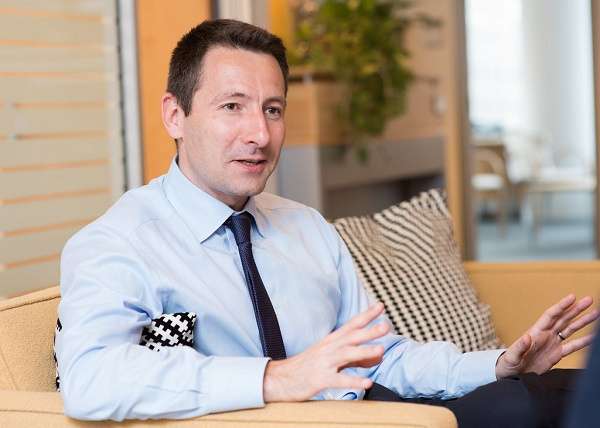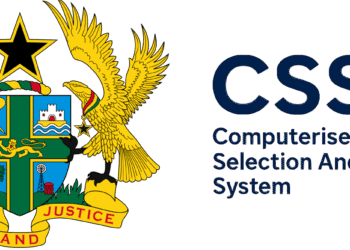The International Monetary Fund (IMF) has confirmed that the fourth review of Ghana’s Extended Credit Facility (ECF) arrangement is scheduled for April 2025.
The announcement follows a visit by an IMF staff team, led by Stéphane Roudet, from February 10-14, during which they engaged with Ghanaian authorities and other stakeholders to assess the country’s economic progress under the Fund-supported program.
During the visit, the IMF team reviewed Ghana’s compliance with key commitments outlined in the ECF agreement, which aims to stabilize the country’s economy amid ongoing fiscal and monetary challenges. The visit also initiated discussions on the policies that will underpin Ghana’s 2025 budget, with further dialogue expected in the coming weeks.
In a statement following the visit, Stéphane Roudet noted that the IMF team examined Ghana’s recent macroeconomic developments and the government’s progress in meeting the program’s objectives. These objectives include fiscal consolidation, inflation control, and structural reforms to strengthen the economy.
“We also took stock of the authorities’ progress in meeting key commitments under the Fund-supported program. These will be formally assessed in the context of the fourth review of the Extended Credit Facility arrangement, which is expected to be undertaken in April 2025.”
Stéphane Roudet

The ECF program, approved in May 2023, was designed to support Ghana’s economic recovery efforts following a period of severe financial stress. The country has faced high inflation, a depreciating currency, and rising debt levels, necessitating IMF intervention to restore stability. The review in April 2025 will determine Ghana’s continued eligibility for financial disbursements under the credit facility.
Engagement with Key Stakeholders
The IMF delegation met with key government officials, including President John Mahama, Finance Minister Cassiel Ato Forson, and Acting Governor of the Bank of Ghana, Johnson Asiama. These discussions centered on Ghana’s economic trajectory, policy measures to address fiscal imbalances, and strategies for long-term growth.
In addition to government representatives, the IMF team engaged with other stakeholders, including representatives from various government agencies, financial institutions, and the private sector. The discussions aimed to ensure a comprehensive understanding of Ghana’s economic landscape and the challenges that need to be addressed.
The IMF expressed its appreciation to Ghanaian authorities and stakeholders for their constructive engagement and support throughout the mission. “IMF staff would like to express their gratitude to the Ghanaian authorities and other stakeholders for their constructive engagement and support during this mission,” the Fund noted in its statement.
Key Policy Considerations for the 2025 Budget
One of the critical areas of discussion during the IMF’s visit was the formulation of Ghana’s 2025 budget. The government is expected to implement policy measures that align with the ECF program’s objectives, ensuring continued fiscal discipline and sustainable economic growth.
A key focus is debt sustainability, as Ghana has been working on restructuring its public debt to ensure long-term stability. The IMF has emphasized the need for prudent debt management strategies to prevent further economic distress. Managing the country’s debt effectively will be essential in creating fiscal space for development initiatives while avoiding excessive borrowing that could undermine economic recovery.
Another major challenge is inflation control, which has significantly impacted the cost of living and business operations in Ghana. The IMF has stressed the importance of maintaining tight monetary policies to curb inflationary pressures. Keeping inflation in check will not only stabilize the economy but also enhance investor confidence and improve the purchasing power of citizens.
Revenue mobilization is also a priority, as strengthening domestic revenue generation remains crucial for Ghana’s economic recovery. Improved tax collection and other fiscal measures are expected to boost government revenue while ensuring a fair and efficient tax regime. The government is likely to introduce policies aimed at widening the tax base and reducing tax evasion to enhance overall fiscal sustainability.
Additionally, structural reforms have been highlighted as essential to enhancing economic resilience. The IMF has called for improvements in public financial management, greater transparency, and a more conducive business environment. Strengthening these areas will help create a stable and predictable economic framework, fostering long-term growth and attracting investment.
Outlook for the IMF Credit Facility Review
As Ghana prepares for the April 2025 review, the government must demonstrate its commitment to the IMF program’s targets. The successful completion of the review will determine the country’s ability to secure the next tranche of financial assistance under the ECF arrangement.
The IMF’s engagement with Ghana reflects its continued support for the country’s economic recovery efforts. However, Ghana must maintain fiscal discipline and implement necessary reforms to ensure long-term economic stability.
With ongoing discussions and policy adjustments, the coming months will be crucial for Ghana’s economic future. The outcome of the April 2025 review will play a significant role in shaping the country’s financial landscape and its ability to achieve sustainable growth.
READ ALSO: Bullish Momentum Sweeps GSE as Market Closes Week on a High Note



















